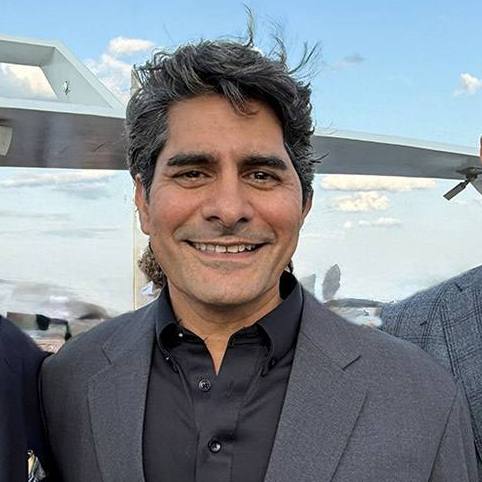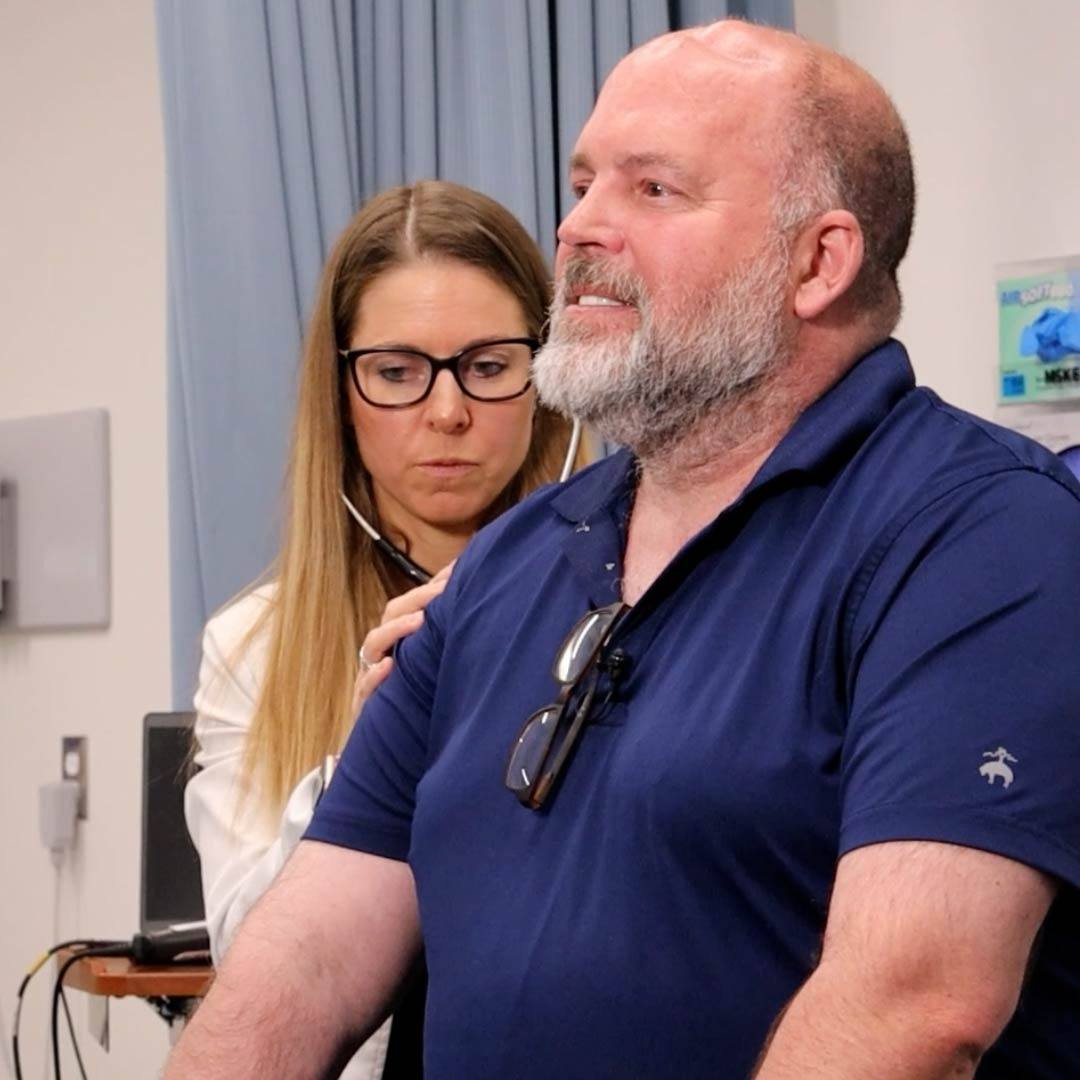
Cameron Kaipainen and his parents spent years searching for explanations to his ongoing and confusing medical problems. It wasn't until arriving at Mayo Clinic in Arizona that the true nature of Cameron's condition was uncovered, giving the family the priceless gift of knowledge.
When Cameron Kaipainen was a child, his mom and dad, Michele and Aron, used to joke that he and his four brothers were each one in a million. Little did they know then that not only is Cameron one in a million, he is one in several billion.
Diagnosed with two extremely rare genetic diseases, Cameron is the only known person to be affected by both conditions. Although his parents spent most of Cameron's 19-year life trying to uncover the reason for their son's developmental delays and medical symptoms, it wasn't until October 2019 that the family, who until recently lived in Puyallup, Washington, discovered the missing pieces of the puzzle after a visit to Mayo Clinic in Arizona.
Following appointments in the Mayo Clinic's departments of Neurosurgery and Clinical Genomics, Cameron was diagnosed with schwannomatosis, a condition that causes benign tumors to grow on nerves, and a chromosomal disorder called 7q11.23 duplication syndrome, which can cause developmental delays, intellectual difficulties, behavioral issues and seizures.
While neither of Cameron's conditions have a cure, the holistic care he's received from his Mayo Clinic team has given the family peace of mind that Cameron is receiving the most knowledgeable care available.
"I can tell Mayo actually cares because they're actually trying to do their best to help me," Cameron says.
Cameron's journey has brought with it emotional highs and lows," Michele says. "It's definitely been a mourning process, but the best part about it is knowing. Having a diagnosis gives us a plan of attack. It gives us the ability to actually understand and know what to expect in the future. This gives us the ability to have goals, and that part is a huge relief."
Perplexing problems
From the time Cameron was an infant, he required extra developmental support. "He was slower at developing when it came to milestones. By the time he was 8 or 9 months old, I'd already gotten him in physical therapy," Michele says. "From then, until he was 13 years old, he did physical therapy, speech therapy and occupational therapy."
Cameron also was slower to learn than his peers, and he had difficulty retaining information. Despite his struggles, he advanced through school with homework support and rigorous involvement from his parents.

More concerning to Cameron's parents than his physical and intellectual delays were his medical symptoms. "Early in his childhood, he started having episodes where he would randomly pass out," Michele says. In 2003, under the recommendation of a neurologist, Cameron underwent a sleep study to evaluate the electrical activity in his brain, but no neurological issues were noted. The fainting was explained as a symptom of low blood pressure and low muscle tone.
"They told us to give him a higher-salt diet because that would help, and eventually he would grow out of it, so we trusted that," Michele says.
In May 2019, Cameron's situation intensified when a fainting incident led to a consult with a cardiologist. During the appointment, Cameron passed out while being examined. That led to hospitalization and an MRI, which revealed the presence of tumors in the spinal column of Cameron's neck.
Ensuing appointments with Seattle-based neurologists and neurosurgeons left the family feeling disappointed, says Michele, explaining that Cameron was diagnosed with a condition called neurofibromatosis — a disorder that affects nerve cells' growth and can cause tumors to grow on nerves, the spinal cord and brain. Michele began researching other treatment centers that specialize in the condition. But when she asked for a referral for a second opinion, she was informed none was needed, and her request was denied.
"The mama bear in me came out. That night, I got online and sent a message to Mayo Clinic through the website," Michele says. She was pleased to receive a call back the next day to schedule an appointment for Cameron at Mayo Clinic in Arizona.
Accurate diagnosis
That Cameron's appointment fell on the particular date it did was the first of many indications for his family that they were on the right path. Months before, Cameron had told his parents that, for his senior gift, he wanted to see was one of his favorite singers, Phil Collins. "The tour wasn't coming to the Seattle area, so I bought three tickets for my husband, Cameron and me to go see the concert in Phoenix on Oct. 15," Michele says. "We'd already put in for the time off. Everything was arranged. And when they called and said, 'We can see you on the 14th,' I said, 'That's perfect.'"
"We are just so blessed that we ended up at Mayo Clinic, and everything has fallen into place."
Michele Corey
At Mayo Clinic, Cameron met with Bernard Bendok, M.D., chair of the Department of Neurosurgery, who requested Cameron undergo a CT scan. "Dr. Bendok was wonderful. He wanted better imaging on the tumor at the top of Cameron's spine because it was really close to an artery," Michele says. "There was so much that should've been done elsewhere that wasn't. We are just so blessed that we ended up at Mayo Clinic, and everything has fallen into place."
In addition to obtaining additional imaging of Cameron's tumors, Dr. Bendok referred the family to Radhika Dhamija, M.B.B.S., in the Department of Clinical Genomics. When Dr. Dhamija first visited with Cameron, she recognized that he didn't fit with a typical presentation of neurofibromatosis. The diagnosis Dr. Dhamija thought of when she met Cameron was schwannomatosis, which is similar to neurofibromatosis, but allows for the growth of benign tumors calls schwannomas on the nerve sheath throughout the body.
"I arranged for testing for schwannomatosis," Dr. Dhamija says. "In addition, I noticed that he has a learning disability, and he had a large-sized head, both of which are not a part of schwannomatosis. So we did chromosome testing to see if there's anything different with his chromosomes."
Chromosome testing, referred to as a chromosomal microarray, is performed via a blood test and examines all 23 pairs of chromosomes for small, missing or extra pieces of chromosomes. In Cameron's case, his seventh chromosome contains duplicated information that causes 7q11.23 duplication syndrome.
"So he does have schnwannomatosis, and he has a chromosomal syndrome — two distinct diagnoses — which is very rare in the rare disease community," Dr. Dhamija says.
Better understanding
Learning that Cameron's developmental issues arise from genetic mutations has set the family on a new course. Since diagnosis, Michele, Cameron and the family's two youngest children relocated to Arizona, so Cameron can continue receiving treatment at Mayo.
"It's important that Mayo Clinic was able to diagnose what he has because when we think about clinic trials and research, it places him in an environment where he has access to the latest and greatest in knowledge and clinic expertise," Dr. Bendok says. "This is a disease that requires a focused, interdisciplinary team."
Cameron's treatment currently involves closely monitoring tumor growth and preparing for surgery if the tumor at the top of his spine begins affecting his quality of life. "The brain and the nerves in the spinal cord can only tolerate so much pressure," Dr. Bendok says. "So should the tumor grow a lot, it may cause pain or a decline in his ability to walk. If it grows really big, it will affect his ability to swallow, and could change his voice and affect the function of his tongue."
"Not only do they (the Mayo team) care about the patients, but they care about the family and the family's ability to have resources."
Michele Corey
Because these tumors grow erratically, it is unclear if Cameron will require surgery, which is why he will continue to receive yearly scans to monitor his tumor progression. Beyond that monitoring and further testing for the cause of his fainting episodes, Cameron's care team is working to better understand how his conditions manifest themselves and what that means for his future.
"Schwannomatosis is supposed to be very painful, and the tumors cause pain, but 7q11 has a symptom of extremely high pain tolerance," Michele says. "Cameron hasn't expressed pain, so these doctors have the humanity to relook at how to take care of the schwannomatosis because Cameron doesn't have the symptoms they use to decide things. It's a culture of teamwork, and it's teamwork from the patient all the way up."
Through the many changes the family has faced, the one constant has been the unwavering support offered by their Mayo Clinic team. "Not only do they care about the patients, but they care about the family and the family's ability to have resources," Michele says. "It's their culture, and you can't get better than that. And that is what is going to make not just Cameron's journey, but our journey with the diagnosis and him being the first person in the world to have both these disorders, better."
HELPFUL LINKS
- Learn more about the Department for Clinical Genomics.
- Check out the departments of Neurology and Neurosurgery.
- Explore Mayo Clinic.
- Request an appointment.







